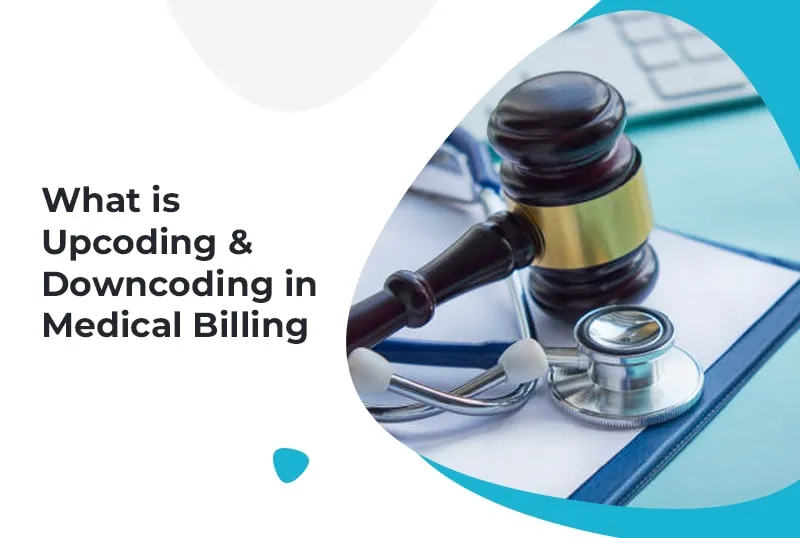Medical billing coding is a crucial component of healthcare services in the USA, ensuring that medical professionals receive fair compensation for their services. It involves two types of coding: upcoding and downcoding. Upcoding typically occurs when a service is billed at a higher level than what was actually performed.
Meanwhile, downcoding is 100% opposite of it. It’s when a service is accidentally billed for a lower level than it deserves. Both errors accidently happen, but they can be a part of serious issues. In this blog, we will discuss in detail about the both terms.
So, let’s get started!
Overview of Upcoding
Upcoding occurs when an organization assigns diagnosis or procedure codes that reflect higher complexity or severity than what was actually necessary or provided to the patient. This practice is considered taboo and carries severe penalties, including fines and potential imprisonment. It is typically undertaken to increase reimbursement from insurance companies.
Why Does Upcoding Occur?
Here are a few reasons why upcoding occurs:
Financial Gain: Some medical experts might upcode to make more money by using higher-paying codes to get more reimbursement from insurers.
Coding Errors: Upcoding happens by mistake if staff are not properly trained or misinterpret medical records. Or it happens due to some auto errors in billing.
Pressure to Meet Financial Targets: Medical professionals may feel pressured to meet financial goals and quotas that follow up code services to generate more income.
Consequences Implementation of Upcoding
The consequences of upcoding are severe. Medical experts found guilty of upcoding face fines, exclusion from federal healthcare programs, and even imprisonment. It also damages the trust between medical experts, patients, and insurers.
Overview of Downcoding
Downcoding is the inverse of upcoding, where billing codes reflect a lower level of service or less severe diagnosis than actually performed. Insurance companies often employ downcoding to reduce reimbursement amounts owed to healthcare providers.
Why Does Downcoding Occur?
A few are the reasons why downcoding occurs due to:
Cost Containment: Insurance companies may engage in downcoding as a cost-saving measure. By using lower-paying codes, they can pay less on claims.
Medical Billing Error: Similar to upcoding, downcoding also occurs due to errors or misunderstandings of medical records by the insurance company’s coding staff.
Consequences Implementation of Downcoding
Downcoding causes financial losses for healthcare providers. When services are downcoded, experts don’t get paid enough for the care they give. It hurts their ability to keep running and deliver good care. Also, frequent downcoding harms the relationship between medical experts and insurance companies.
Conclusion
Upcoding and downcoding are big errors in medical billing coding with serious effects. If you already know these errors and want to prevent them, keep practicing to fix them and help medical experts get fair payment, follow the rules, and build trust with patients and insurers.
For doctors, hospitals, and clinics in the USA, staying updated and careful is essential for handling medical billing and coding complexities.







